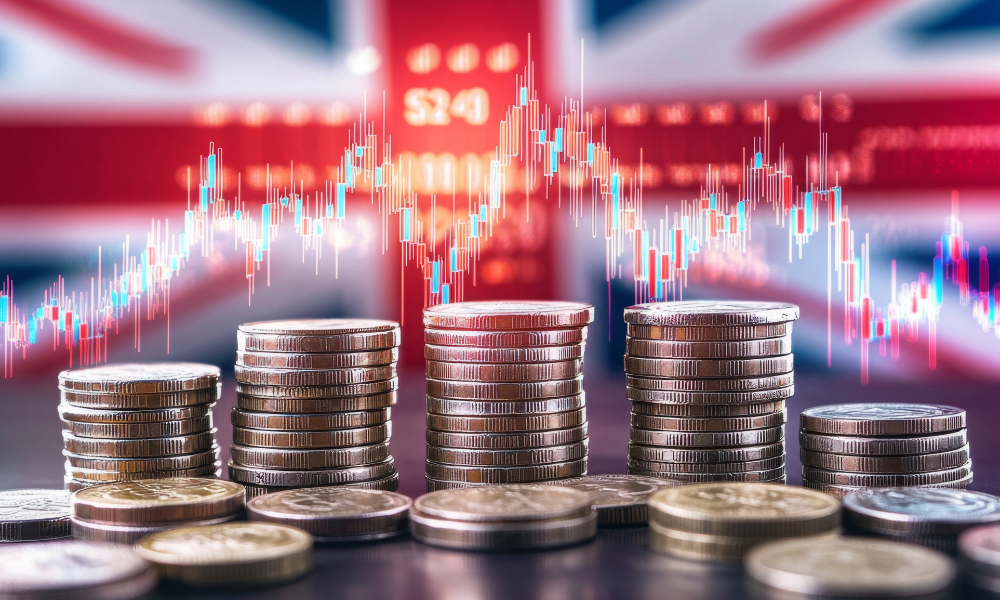Stronger-than-expected GDP data eases recession fears

The UK economy expanded unexpectedly in the final quarter of 2024, defying expectations of a contraction and easing concerns over a potential technical recession – a significant reprieve for Chancellor Rachel Reeves after facing a bombardment of criticism for recent decisions.
Latest figures from the Office for National Statistics (ONS) have shown that gross domestic product (GDP) increased by 0.1% between October and December. Signs of a pick-up will likely lift the government’s mood ahead of new figures from the Office for Budget Responsibility next month. The economy is now slightly larger than before Labour took office in July.
Economic growth in December was stronger than anticipated, with GDP rising 0.4%. The services sector was the primary driver, contributing to the economy’s resilience. This followed revised 0.1% growth in November.
Services output increased by 0.4% in December, an improvement on the 0.2% growth recorded in November. Over the three months to December, the sector expanded by 0.2%.
Industrial production also rebounded, growing by 0.5% in December after contracting by 0.5% the previous month. However, production declined by 0.8% over the final three months of the year, largely due to weaker manufacturing output.
Construction output fell by 0.2% in December after a revised 0.6% gain in November. Despite the monthly decline, the sector grew by 0.5% in the final quarter.
For the full year, GDP rose by 0.8% compared with 2023, signalling modest economic expansion despite previous concerns about a slowdown.
GDP grew 0.1% in Quarter 4 (Oct to Dec) 2024; services (+0.2%) and construction (+0.5%) both grew while production fell (-0.8%).
— Office for National Statistics (ONS) (@ONS) February 13, 2025
Read GDP first quarterly estimate ➡️ https://t.co/jdIMeoFUj8 pic.twitter.com/SVW6diYVcQ
“The economy picked up in December after several weak months, meaning, overall, the economy grew a little in the fourth quarter of last year,” said Liz McKeown, ONS director of economic statistics, commenting on the latest GDP figures.
“Across the quarter, growth in services and construction were partially offset by a fall in production. GDP per head, in contrast, fell back slightly in the quarter.
“In December, wholesale, film distribution, and pubs and bars all had a strong month, as did manufacturing of machinery and the often-erratic pharmaceutical industry. However, these were partially offset by weak months for computer programming, publishing, and car sales.”
Economists had anticipated a slight contraction in the fourth quarter, which would have marked the UK’s second recession in just over a year. A technical recession is defined as two consecutive quarters of economic decline. The UK economy briefly entered recession in the latter half of 2023, before rebounding in early 2024.
The latest figures come after the Bank of England cut its growth forecast for 2025, lowering its projection from 1.5% to 0.75%.
Chancellor Rachel Reeves welcomed the data, following criticism that her October Budget had weakened business and consumer confidence.
“For too long, politicians have accepted an economy that has failed working people, I won’t,” Reeves said. “After 14 years of flatlining living standards, we are going further and faster through our Plan for Change to put more money in people’s pockets.
“That is why we are taking on the blockers to get Britain building again, investing in our roads, rail and energy infrastructure, and removing the barriers that get in the way of businesses who want to expand.”
Any thoughts on the state of the UK economy? Let us know by leaving a comment in the discussion box at the bottom of the page.



